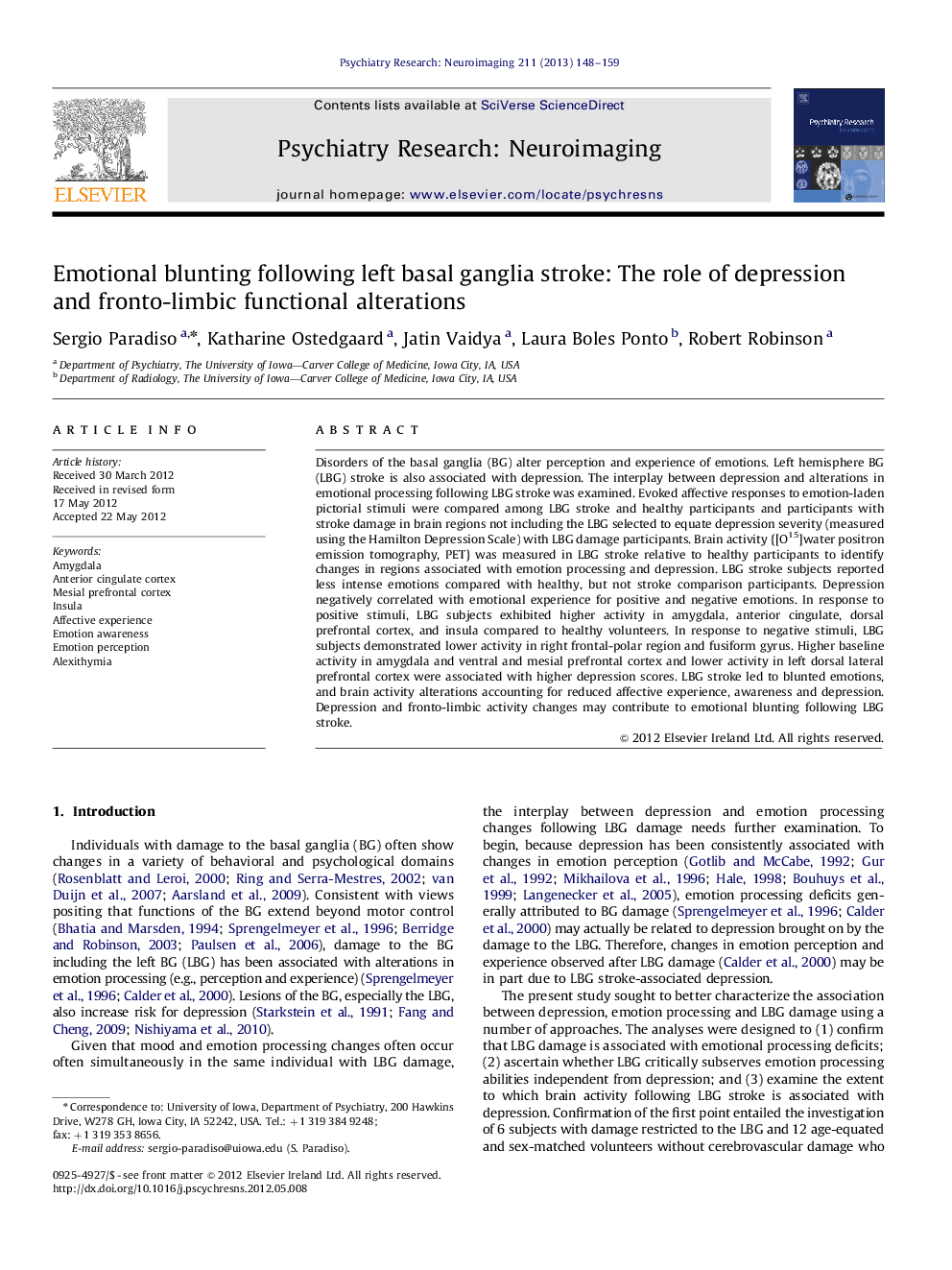| Article ID | Journal | Published Year | Pages | File Type |
|---|---|---|---|---|
| 335369 | Psychiatry Research: Neuroimaging | 2013 | 12 Pages |
Disorders of the basal ganglia (BG) alter perception and experience of emotions. Left hemisphere BG (LBG) stroke is also associated with depression. The interplay between depression and alterations in emotional processing following LBG stroke was examined. Evoked affective responses to emotion-laden pictorial stimuli were compared among LBG stroke and healthy participants and participants with stroke damage in brain regions not including the LBG selected to equate depression severity (measured using the Hamilton Depression Scale) with LBG damage participants. Brain activity {[O15]water positron emission tomography, PET} was measured in LBG stroke relative to healthy participants to identify changes in regions associated with emotion processing and depression. LBG stroke subjects reported less intense emotions compared with healthy, but not stroke comparison participants. Depression negatively correlated with emotional experience for positive and negative emotions. In response to positive stimuli, LBG subjects exhibited higher activity in amygdala, anterior cingulate, dorsal prefrontal cortex, and insula compared to healthy volunteers. In response to negative stimuli, LBG subjects demonstrated lower activity in right frontal-polar region and fusiform gyrus. Higher baseline activity in amygdala and ventral and mesial prefrontal cortex and lower activity in left dorsal lateral prefrontal cortex were associated with higher depression scores. LBG stroke led to blunted emotions, and brain activity alterations accounting for reduced affective experience, awareness and depression. Depression and fronto-limbic activity changes may contribute to emotional blunting following LBG stroke.
